This article was updated on January 29th, 2024
Is your older dog not eating as much as they used to? There are lots of reasons why your dog’s appetite might not be up to par. One reason may be the normal aging process. It is also possible that the decreased appetite is caused by health problems. In this article, our veterinarians Dr. De Klerk and Dr. Whittenburg explain when to worry & how to help your dog.
Answer these questions to find out why your senior dog is not eating:
You have two options: simply answer the quiz questions below to see personalized recommendations tailored to your dog’s particular situation, or continue scrolling to read our article:
Things to know about older dogs no longer eating well
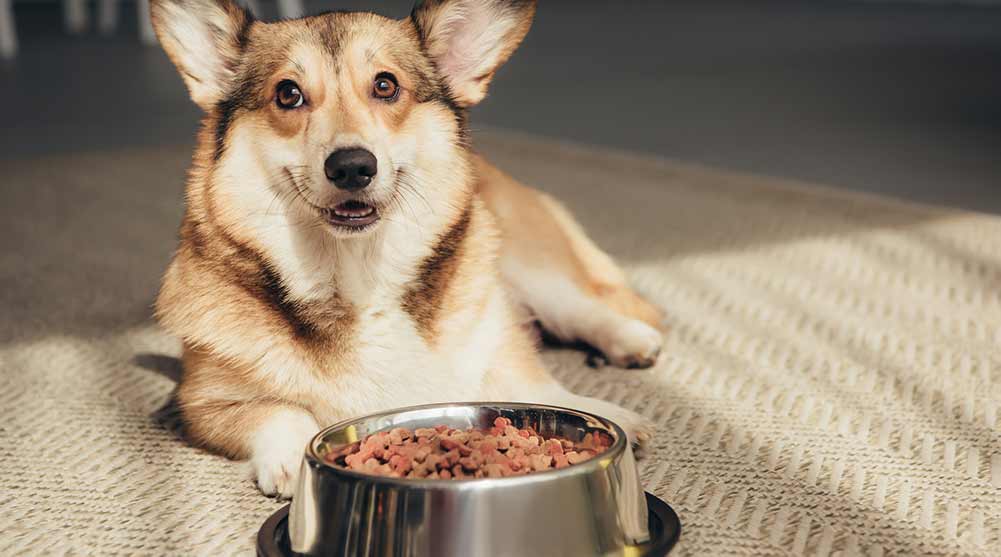
1. Weight loss (in addition to appetite loss) is a concern
Dr. Whittenburg explains there is an important difference between just ‘eating less’ or ‘not eating’ occasionally, and ‘losing weight’ in addition to the appetite loss:
“Your dog’s weight is as important as their appetite. A senior dog who isn’t eating as much as they used to but is maintaining his weight is less worrying than one who is losing weight. It’s also important to differentiate between an old dog who’s always been “picky” and gradually becomes more so, and one who’s previously always loved his food but now has very little appetite or doesn’t seem to care about it. The second scenario is much more worrying than the first.”
Weight loss in a senior dog can indicate that your dog is suffering from an illness, not just temporarily losing their appetite. If your dog has also lost weight in addition to their appetite loss, read our article “Senior Dog No Longer Eating – And Also Losing Weight or Showing Signs of Illness“.
2. Signs of gastrointestinal upset (vomiting or diarrhea) can help narrow down the list of possible causes
Your senior dog no longer eating is already a cause for concern but there are many conditions that can cause a loss in appetite. Knowing that your dog also vomited, or experienced diarrhea can help narrow down the list of potential causes.
If your dog has also experienced vomiting or diarrhea, we recommend reading one of these articles:
3. A senior dog suddenly refusing to eat at all should be seen by a veterinarian
There are a number of factors that can impact a dog’s appetite, as Dr. De Klerk explains:
“Appetite is one of those things that can fluctuate on a fairly regular basis. Dogs eat less when they’re in pain, when they’re stressed or anxious, when it’s hot, when they’re not getting much exercise, and so on. Unfortunately, with arthritic joints, pain is a common condition that older dogs can experience. But if your senior dog isn’t eating on a regular basis, if they’ve lost interest in food, or if they are losing weight, then you need to figure out what’s going on.”
4. Senior dogs tend to eat less as they get older
Puppies eat more than adult dogs per pound of body weight, whereas senior dogs tend to eat less than younger adults due to a slower metabolism and activity level. Eating less, or more, from time to time doesn’t necessarily mean there’s a problem. Sometimes just being a senior citizen is enough to take the edge off your dog’s appetite.
Senior dogs typically don’t get nearly as much exercise as they used to because their body isn’t up to running, jumping, leaping, or chasing. A leisurely stroll down the street and back may seem like a marathon to them. Also, they’re sleeping more than they used to, and therefore burning fewer calories.
Lastly, as dogs age (humans too!), their metabolism naturally slows down. This means that it’s more difficult for your dog to use their food efficiently, or quickly.
5. The most common reasons causing senior dogs to stop eating include dental problems and other physical health issues
Here are the most common reasons that cause older dogs to eat less:
1. Dental Problems
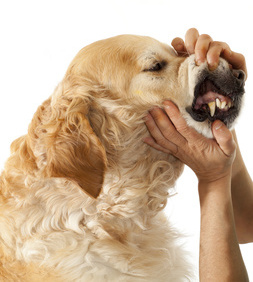
When your older dog isn’t eating well, you may not think to look inside his mouth right off the bat.
But dental problems — such as broken teeth, gingivitis, cavities, or infections — can make eating very painful. Also, it’s not only the inside of the mouth that can cause a problem; arthritis of the jaw joint can make chewing a sore process.
Generally, this is a pretty straightforward fix, requiring just a trip to the veterinarian for tooth extractions, dental cleanings, and antibiotics. With treatment, the result can be nothing short of amazing for dogs.
Many owners worry about how their senior dog might react under anesthesia for a dental procedure. But the good news is that medicine has advanced so much over the past decade, that the anesthetic drugs used are generally very safe. If you want to take an extra precaution, ask your vet to perform a pre-anesthetic blood test to check your golden oldie’s internal health beforehand.
Until your senior dog’s teeth are treated by your vet, you could try softening their food by soaking it in warm water or chicken broth, so it is less painful to chew. You may also switch to canned food.
3. Physical Health Conditions
There are a lot of different senior dog health issues that can cause your older dog to eat less. Some of them are minor, whereas others can be serious, and may even become chronic.
The less serious ailments (although they are still ailments you should take your dog to the vet for) include a digestive system that’s just not as efficient as it used to be, food sensitivities, constipation, a poor sense of taste/smell which makes his food less appealing, depression, cognitive dysfunction, dental problems (see above) or anything which is causing them to feel nauseous.
If you’ve got an older dog who’s not eating, some more concerning possibilities include the following:
- Addison’s Disease
- Kidney Disease
- Heart Problems
- Cancer
- Liver Disease
“When your dog is experiencing a more severe illness, it’s common to notice other symptoms accompanying the loss of appetite. Watch out for signs of weight loss, excessive thirst, behavior changes, lethargy, and GI issues such as diarrhea, vomiting and constipation, and any other signs of discomfort of illness.”
If your dog is not eating the way they used to and is showing ANY other signs of not feeling well, your best bet is to get them a full veterinary exam. While many of these ailments are not a cause to make a call to your vet in the middle of the night, it’s important not to take too long of a ‘wait and see’ approach with older dogs before going to the vet.
If your older dog isn’t showing any of these symptoms and they are acting normally but just seem to be less interested in their food than they used to be, there are some things you can do to encourage them to eat more. Let’s review tips to help your senior dog eat more.
5 Easy Tips to Help Senior Dogs Eat More
1. Make His Meals Taste and Smell Better
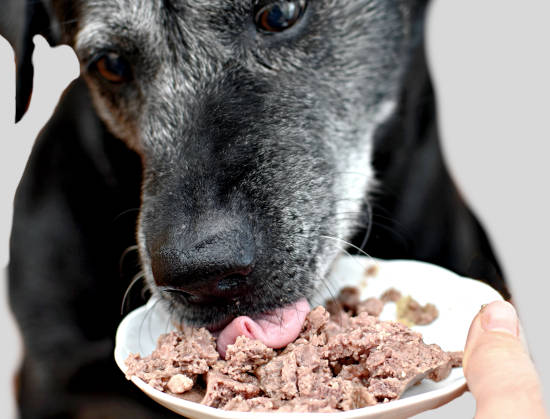
The senses of senior dogs are changing. If your dog is no longer into their food because it just doesn’t taste or smell as appealing as it used to, it’s only natural that your dog won’t be as excited about eating it. Try the following.
- Add a little gravy:
- Made With Real Chicken or Beef: Pedigree Choice Cuts In Gravy Adult Soft Wet Dog Food 18-Count Variety Pack is made with real chicken or real beef
- Or clear (low-sodium) chicken broth:
- SUPPORTS JOINT HEALTH: Every serving of Brutus Bone Broth for dogs is infused with Glucosamine and Chondroitin to support healthy hips and joints in its dog sauce flavor for puppies and older dogs.
- Add warm water to low-fat peanut butter until it becomes liquid:
- ✔️ HEALTHY DOG TREAT - if you wouldn't eat its why would you feed it to your dog, aka your furry family member? That's why we made an all natural peanut butter for dogs that's fit for human consumption. It two simple ingredients peanuts and honey. Theres no high fructose corn syrup, stabilizers, xylitol, artificial sugar, or salts.
Your senior dog might also love a little extra canned (wet) dog food, low-fat cottage cheese, dried Parmesan cheese, egg whites, or yogurt added to their food.
We recommend that you always consult with a veterinarian before changing your dog’s diet. For example, you should be aware that some low-fat peanut butter contains xylitol (an artificial sweetener) which is very toxic to dogs. Make sure to read the label of any product you buy first. Or even better, buy dog-specific peanut butter:
- ✔️ HEALTHY DOG TREAT - if you wouldn't eat its why would you feed it to your dog, aka your furry family member? That's why we made an all natural peanut butter for dogs that's fit for human consumption. It two simple ingredients peanuts and honey. Theres no high fructose corn syrup, stabilizers, xylitol, artificial sugar, or salts.
2. Warm your dog’s food in bone broth
If their kibble is mixed with gravy, canned food, or one other suggestion above, try heating the whole meal a little. This makes it smell tastier and releases the flavor more easily.
If your dog is mostly eating dry food, try soaking the kibble in bone broth for 5-10 minutes. Bone broth is tasty, nutrient-dense, and easy to prepare. It’s an all-natural superfood! It is perfect for dogs that have lost appetites or to encourage sick or convalescing dogs to eat more. Read our page on Bone Broth for Senior Dogs.
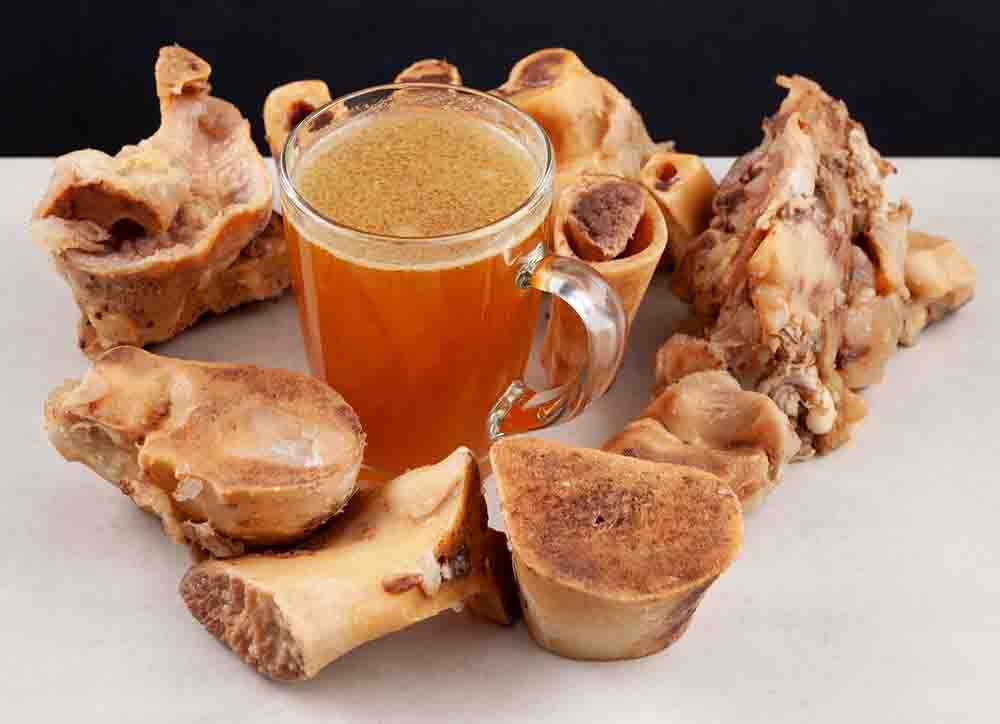
3. Add a little variety
Your senior dog may be trying to get tastier meals by turning down a certain food for a couple of days! Adding a little variety at least 3-4 times per week might help your dog eat more.
4. Use wet food
Canned/wet food can be a good option for older and senior dogs. For an older dog who’s not eating well, sometimes a change in food can help. If you’ve always fed dry kibble, then now might be the time to start mixing a little canned food in with the dry.
Senior dogs with dental problems often find it easier to eat soft food rather than hard kibble.
Canned dog food contains a lot more water than dry food (obviously!), so it’s also a good way to get more fluids into your older dog.
Soaking the dry kibble in warm water (or broth) and then mixing it with canned food will give you the best of both worlds and is what I tend to do when I’m trying to tempt a dog to eat more.
5. Feed your dog less, but more frequently
A big meal might be too much for your older dog to stomach, but a smaller portion (especially if you use one of the above tips to make it more appealing) might be just what the doctor ordered.
Adult dogs often only eat once a day, but a senior dog usually does better with two (or three) smaller meals.
Every dog is different, and you know your dog best, so if you think feeding him a handful of tasty food six times a day is the best way to get them to eat, then do it.
There’s no ‘one-size-fits-all rule at this point. BUT, don’t overfeed them. If you’re feeding him three, four, five, or even six times each day, divide their daily intake up into that number of portions.
However, this does NOT mean that you should feed your dog more treats or snacks. Iif your old dog is already eating less, treats could potentially make them feel ‘full,’ and they may no longer have enough appetite for the ‘proper’ and nutritious meals. So, as tempting as it may be to give that sad old face more treats, you actually need to give them fewer. Also, make any treats super-healthy ones, that way they’re getting something with nutritional value rather than empty calories.
Freeze-dried liver treats or tiny slivers of meat (or ground beef) are my usual choices here.
To learn more about feeding your old dog, read our practical, tried-and-tested tips and advice that will help here…: Getting Older Dogs To Eat.
Read our veterinarian articles about senior dog nutrition:
 9 Tips from Our Veterinarians to Help Your Old Dog Eat More - Getting older dogs to eat can often be a challenge as there are multiple reasons for our golden oldies to… [...]
9 Tips from Our Veterinarians to Help Your Old Dog Eat More - Getting older dogs to eat can often be a challenge as there are multiple reasons for our golden oldies to… [...] Weight Loss In Old Dogs: Our Veterinarians Share What To Do - Weight loss in older dogs can be slow and subtle, or it can be sudden and noticeable. Either way, if… [...]
Weight Loss In Old Dogs: Our Veterinarians Share What To Do - Weight loss in older dogs can be slow and subtle, or it can be sudden and noticeable. Either way, if… [...] How To Keep Weight on an Older Dog - It can be difficult to keep weight on an older dog for several reasons, including poor appetite, poor digestive function,… [...]
How To Keep Weight on an Older Dog - It can be difficult to keep weight on an older dog for several reasons, including poor appetite, poor digestive function,… [...]Disclaimer: This website's content is not a substitute for veterinary care. Always consult with your veterinarian for healthcare decisions. Read More.








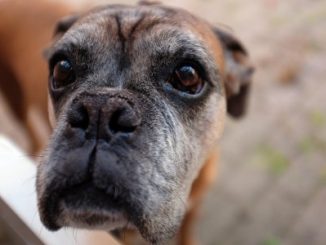
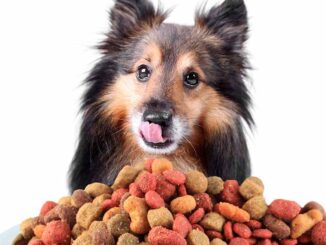
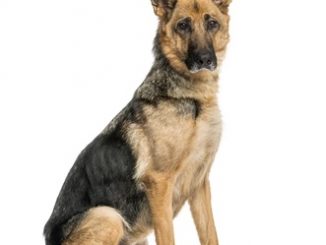
My dog Oscar is a Long haired Dachshund and he’s 16 years old. Up until a month ago he would p,at with his toys and give me a great greeting when u get home from work. The only time I let him eat human food is when I go on a road trip or camping except tones from the steak. He has had diarrhea for over a month and he is slowly losing his appetite. Still wants to play with his toys but loses interest quickly. No more exciting greetings when I get home. He won’t take more than a few bites of a burger and he hasn’t touched his normal dog food that I have changed over and over in weeks. Tomorrow is the first vet appointment but I can’t afford it and plan to get booted when I tell them. I just moved and my money went to the move. I am working but playing catchup. I know moving doesn’t help but he is so spirited. He may be a little down but I know there is something else going on. If I lose him it will be devestating
I know man. I’m in same boat. Just turned 16. Diarrehea a month ago and now does not eat anything. I know he is dying. But still devastated. I am prepared for it but have spent about 3000 dollars in last 3 months. Money means nothing as I need him. I really don’t know what I am going to do without him.
You said you moved recently, and that may be all it took. You said you moved a month ago, and he has had diarrhea for a month. Also the behavior changes of not greeting you as big as before, playing with toys, etc. I can tell you from experience, dogs live through their noses….so at 16, his whole world has been turned upside down, he’s in a new place, with new smells, and unfamiliar surroundings. That all by itself can bring on a lot of stress for a little guy. He’s not sure of what is going on and why the surroundings changed. Animals are particularly sensitive to this. I would hope your vet would look at your dog anyway, just on a humanitarian basis, if you cannot afford the bill. But I have a 12 and 16 year old sheltie, and I can tell you, at this point in their lives, ANY change to their routine, is met with similar response. I have one that is a picky eater anyway, but if I even change brands of supplements for him, he will turn his nose up. The other one becomes confused easily if the going out schedule changes even by a half an hour. Dogs rely on routine, and when routine is disrupted, you will see stress diarrhea, among other things. I would suggest maybe getting some Bach Rescue Remedy and giving him a few drops of that a couple times a day, to help alleviate any trauma he is experiencing from the move. And when you are at work, maybe leaving something you have worn recently, like a tee shirt or socks, with him to reassure him that the new place is now home, and you are coming back. And maybe sitting with him while he eats, will reassure him, too. If he has had diarrhea for over a month, his GI tract has to be inflamed. There is a supplement called Slippery Elm that is very good. You break open a capsule of it, and add a little hot water and stir until it thickens, you will probably have to give it to him in his mouth with a syringe, but it coats the GI tract and will help with the diarrhea. Also, plain canned pumpkin is helpful at settling the stomach and diarrhea. But you want PLAIN pumpkin, not the pie filling that has sugar and spice in it already. Just plain old pumpkin. I think, barring anything serious, there has just been too much change too quickly for poor Oscar, and he doesn’t know how to process it. At 16 his sense of smell and sight and hearing might be diminishing, too, making adjustment harder for him. Just reassure him and make sure there are plenty of things with your personal scent around him when you are at work, so he knows the new place is home, and maybe taking him on more frequent walks so he gets used to the new scents and will soon associate that with home. Hope this helps.
Oh, one more thing about his food. You said he is not touching his normal dog food, and you have changed it over and over again in the past weeks. This is not good, that all by itself will bring on GI issues. when you change food, you have to do it slowly over time by quarters. So if you give him 1 c. of food a day, what you want to do is give him 3/4 c. of his regular food and 1/4 c. of the new food for about 10 days, then 1/2 c. of old food and 1/2 c. new food for 10 days, then 1/4 c. old food and 3/4 c. new food for 10 days, then 1 c. of new food. If at any time during the transition you see digestive problems like diarrhea, then you know he is not tolerating the new food and you go back to the old. What I would do now for him, is boiled chicken and rice, to give his GI tract a chance to settle down. Just get ground chicken or turkey, white rice, and boil it just plain. You can add a bit of salt, maybe a pinch or two, and maybe a single tablespoon of mixed veggies (frozen) and maybe 1/4 tsp of fish oil, added to the boiled chicken and rice. It will be easier to digest, he will get his nutritional requirement of protein, carb, and fat, and the blandness and purity of whole food will settle his tummy down and the rice should help bind him up with the diarrhea. Hope this helps. I really do think that poor little Oscar has had some really MAJOR change thrust on him in a very short space of time (he probably saw you packing for the move, ahead of the move, and his flags went up right there that something was amiss) and he just really doesn’t know what to do with it. Try this, and
keeping him with you, maybe let him sleep with you on the bed if you don’t already, and just do anything and everything to reassure him he’s not being abandoned, nothing between you and him have changed, keep up all the old routines, just the routines are in this new place. He is probably picking up scents in this new place he cannot identify, which is why it’s important to make sure he has plenty of things around him that he can access with your scent on it, so he knows this is home and you aren’t going anywhere.
My we dog had diarrhoea & vomiting took her to vet gave her 2 jags for sickness & pain , but took her home she tried to eat but brought it up the same way it went down she is 15 years old hunch on her back can’t get heart tablets into her not interested in food took her to vets again vets said do test but at her age not good there is an under lying problem she advised me to put her to sleep feeling awful since it happened I gave up to soon can’t cope with guilt I loved her so much
Jacqueline,
Don’t beat yourself up, your pup knows you loved her. I just put my pup down a couple of days ago. Gave him baby food by syringe, had him on a heating pad, slept constantly, got disoriented in the back yard. Your pup had lots of issues diarrhea, vomiting and no eating, hard to watch the suffering. Be kind to yourself, grieve but remember all the love and care you gave your pet. I’ve had lots of pups, all special in their own way, saying good bye always heartbreaking. Give yourself some time to recover from your heartache.
Jacqueline please do not feel bad for the choice you made. I too had very same issues with my little Mojo he was only about 11 – 12 though. I took him to the vet spent a very large sum of money because I was also not willing to let him go, but he had an autoimmune problem, and even though I was devastated, I choose to put him to rest instead of trying more treatments that may not have worked. Sometimes the most humane thing we can do for our Furry Babies is to let them go. I know that it is hard, trust me I know. I am crying as I write this to you because I still have not gotten over his lose.
Just lost my 15 year old Sasha. I had to have her put down due to severe diarrhea and not eating. I tried everything to get her to eat. She acted like she wanted too but couldn’t. Diarrhea was really bad. She was skin and bones. I feel it was her time. I just wasn’t ready. Miss her so!
I’m there now with my Buddy. I need to let him go. Prayers for you 🙏
We just lost our beloved shin Tzu girl. She slowly deteriorated to skin and bones. She lost interest in eating and began pacing continually. We tried everything homemade food appetite stimulants vitamins but to no avail. We are heartbroken but feel blessed we had her for 15.5 years. We couldn’t see her suffer so I’m compassion we had her out down. She no longer had a quality of life. She didn’t understand her pain i looked in her eyes and could see her misery. I hugged her and told her we loved her and thanked her for the joy and love she have us.
Ready the previous comments brings tears to my eyes. I have a 17 year old Pom who thankfully is going strong. But I know the time is limited and it makes me sick as he is our baby. Have had 3 females who I lost at different times, different ways but each time it breaks your heart. Last one actually died in my arms at home, her heart just gave out. Unbelievably she died so peacefully after being ill with Cushings and CHF. Just remember all the happiness and good times together. They all truly know how very much they are loved so don’t ever feel guilty about letting them go when it is time.
Hello, We put our nearly 18 y.o down last week, I’m devastated! its the hardest decision I have ever had to make and I question myself all the time if it was the right thing to do as I miss her so much. But she did not want to eat and I did syringe her food for some days, she had started having seizures and that took its toll on her after everyone she was that much worse, she had some dementia to. She was on arthritis medication and that helped her a lot, but made her a bit sick to. She would run around and I had to stop her so she would not have another seizure. Her recent heart medication made her staggery and not want to eat either. When she started to rub her head on her bed and look miserable and had another seizure then diarrhea, it was time. I still question if I could have done more though and had more time with her. So heartbroken and I don’t think I can ever get another dog as it wont be the same as this sweet girl, I don’t want to go through this pain again. She was the best loving dog I had ever owned. I even ordered myself a book called “The Pet Loss Companion” it is not here yet but the reviews have been good. It might be of help to others here to.
My dog is a Japanese spitz poodle mix. She is 16 almost 17 years old. She gets very hot when the weather changes and it goes from hot to cold. She does have dental problems, but I will not put her under cause it’s unsafe for her age.
Yes, animals, mostly dogs, are a great companion in all ways. Humans that take the time to understand them, and love them are really blessed. Many people dont realize what it is to have something or someone to love them dearly no matter what they do, but animals only want love and to give love. We are blessed to have animals on the planet, although many people dont appreciate them, and that is a shame!!
My girl is dying too. She had a good life and has been my truest friend besides my Lord Jesus Christ. I thank God for time I had her.She is 14, a golden doodle.
Chloe was my Golden doodle that was euthanized at age 10 which was 3 yrs ago. I’m still grieving. I took her to the vet because her diabetes was getting worse. I was given insulin 2 times a day. Chloe had gone blind. She had started to throw up dark brown coffee grounds looking. When I called to get the vet to look at her, I had convinced myself everything would be alright cause I couldn’t possibly lose my beautiful sweet Chloe. I got her to the vet and after the exam and tests was told her body was riddled with cancer and the compassionate loving thing was to let her go. My vet performed euthanasia and I had to leave her lying on the exam table. It was hard and I put off for 3 weeks picking up her ashes. When I picked up her ashes and brought her home, I said out loud, “my sweet girl you’re home now”. I felt incredibly at peace in knowing she was no longer in pain. Throughout Chloe’s short 10 years on earth, she was sweet, loving, gentle, always eager to play or sensing your state of health, would adjust her activity level. I miss her every day. I will always love her.
I need help with my senior Aussie. She is eating less and lost a lot of weight, she his skin and bones. I took her to the vet and had tests, they found no physical conditions. We just cannot figure out why she won’t finish her meals. She always starts eating when fed, but doesn’t finish. She doesn’t ever return to the food she left either. However, she will eat any treat offered. Yes, we have tried different food, we don’t know what else to try.
I need help with my senior Aussie. She is eating less and lost a lot of weight, she his skin and bones. I took her to the vet and had tests, they found no physical conditions. We just cannot figure out why she won’t finish her meals. She always starts eating when fed, but doesn’t finish. She doesn’t ever return to the food she left either. However, she will eat any treat offered ( and still eats dog feces in the yard 🙁 ). Yes, we have tried different food, we don’t know what else to try.
My Labrador is not eating anything from last 7 days . she is 13 or 14 years old i guess!! And she can’t stand itself.. she is continuously sleeping for a long time what should i do… 😫
This is just happening with my chihuahua. She’s 11 she was really sick Friday night ate the smallest bit on Saturday nothing for 3 days now we are having to take water to her and encourager to drink every half an hour she hardly has anything
She’s so lethargic. Friday she was running round with my children
I’ve been to the vet and they can’t find anything.
They want to x Ray her but if the sedate her it’s a big risk as she is so lethargic and small and 11
I feel heart broken already
X
My little baby’s time is coming soon and many of your comments help me. Had an Aussie years ago. He loved life so much! Always the clown. When he didn’t love it or food anymore, I knew it was time. No regret. It was for him. I wasn’t going to keep him for my sake. Great memories!
My baby’s time is coming near as well. He is 14 now, haven’t had food for about 4 days, no matter how I try to convince him. He can no longer stand on his own. I hold him up so that he can have some water but that’s about it. The vet basically told us nothing can be done at his age. He’s such an angel, it’s heartbreaking to think of life without him.
I cried reading all of this because I’m crying a lot lately. My 13y old chihuahua has had diarrhea for over a year. His poo is just loose and he had tests done and nothing came up. Supposedly a stomach infection. He’s been on steroids for months nkw and finally got better when I discovered the diarrhea was because of dog food. Tried different brands, same thing. I started cooking for him at home, he gained weight and was so much better. Even our vet was shocked. Then suddenly, he stopped eating his food. He does search for food and occasionally eats some treats. I feed him baby food via syringe but feel like I’m torturing him. He does eat fruit and veggies on his own at times. Some people tell me he’s picky and tired, while others tell me, it’s time to let go. But I’m not ready. He’s my little baby!! Had him since he was two months old. What else can i do? I’ll go to the vet eventually but he just doesn’t have answers for me anymore.
Over the last few months, my 15 y/o Dachshund stopped eating as much as she used to. The first day or two I didn’t think much about it, as the weather was starting to warm up. Her appetite came back for a bit then she began eating less. What I have discovered, through vet visits and trial/error is that she is just not eating as much, especially in the morning. I now give her a smaller serving at feeding time and she usually finishes all of her dinner. Like many of you out there, I’m also trying to prepare for what I know will be coming. In the meantime, I’ll keep loving my little Trixiedoodle!!
I took my dog to the vet for an ear infection. One week in medication made him deaf. Looked up the medication side effects deafness. Why would a vet do that. My poor dog. Don’t trust veterinarians.
Gwen,
I’m sorry to hear this and I feel your pain. I don’t trust vets at all. I took my 12 y/o little girl to a new vet 9 months ago because I moved out of state and she was due for her senior checkup. Everything checked out perfectly. Then he convinced me that one of her canines was infected and needed to come out or it would ruin her sinuses. Reluctant, I agreed to it and she almost died on the table because they gave her too much anesthesia. She has been declining health wise ever since. I wish I never agreed to have that done because now I feel responsible 🙁
I feel for you. My Chihuahua is 15.5, she had a ACL issue about 3 years ago, it resurfaced a week ago, took her to the vet, spent money I don’t have but nothing can be done, surgery not advisable at her age, plus I couldn’t afford it, she’s been limping since, wetting her bed at night and now she refuses to eat, nothing seems to entice her anymore, she sleeps practically all day, goes out to relieve herself and comes in to sleep some more. She also has a collapse trachea which causes her to cough, can give her the med for that because she’s not eating. By reading all of the comments I know her time is near all I do is cry because I love this little dog, she’s been with us since she was 9 weeks OLD!
I have a little dog named Tootsie she is 12 years old. The last two months I have carried her to the vet. She will not eat. She will drink water. I have tried everything to get her to eat. I don’t know what else to do. One of her eyes is infected. She has these little bumps all over her body. They removed several larger ones. I was hoping it would make her feel better but it didn’t. They ex rayed her and said that her hips are going out. They took blood work and said her white blood count is up. But they don’t really tell me anything else. So I am going to have decided to probably put her down. She is still walking around okay and responding so I am not going to do it right away. But I cry everyday she has been my everything the last few years. I have went through a lot and she has been with me through it all.. I love her so much!!! I could write so much more. I just wish she would eat. I know she would feel better…
My heart goes out to all of you.My little Chinese crested girl i3 years old and she wont eat nothing,all the things she loves,bake chicken,cheeses.hot dogs cereal,beef nothing.Look in her mouth seems to be fine and even if she had a bad tooth she could eat the soft stuff.Maybe she is shutting down.She acts like she wants food but then she wont eat.
We have 3 tiny female dogs. I love them all so deeply. We have 2 small yorkies (1 is 16 and the other is 12). We also had a tiny chihuahua. Tia was 8 years old and we thought we would have her long after the other 2 dogs left us. She went from 4 lbs. to 2.5 lbs. She was diagnosed with kidney failure and in 1 week she was gone. We were not prepared for her to leave us and both me and my husband miss her terribly. She was the most affectionate dog of all 3 and the youngest. We never had any health issues with her and took meticulous care of her and the 2 yorkies. When she was diagnosed I found a recipe for dog food I could make that didn’t put a strain on the kidneys and bought distilled water. I started all 3 on the diet and water but in a week she was gone.